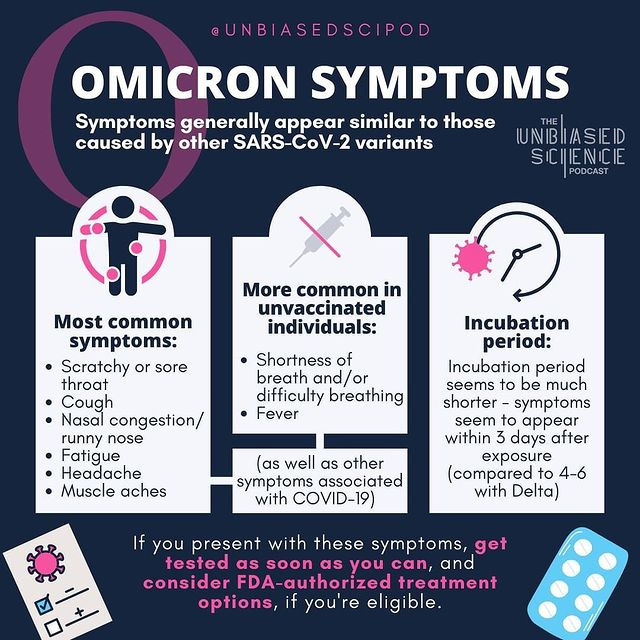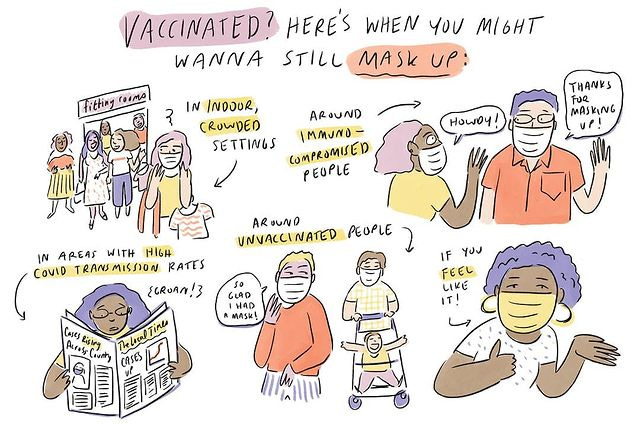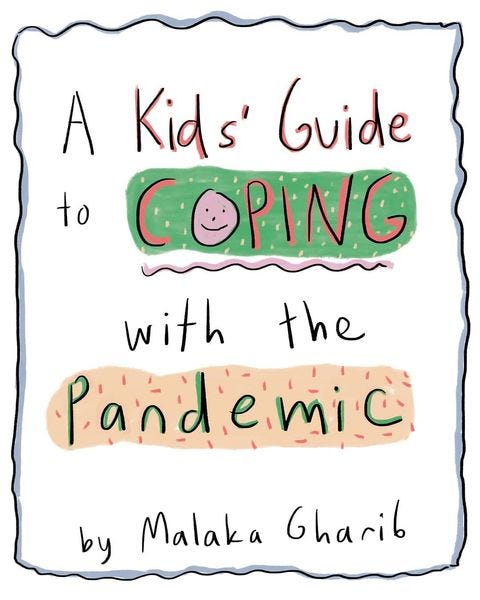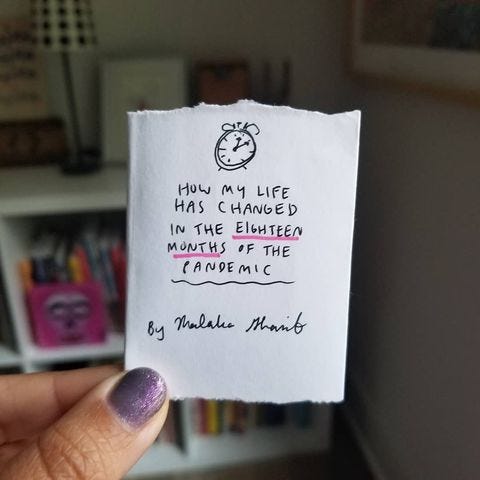The Dose: The World's Remarkable Trees
Omicron symptoms, baby talk among couples and the world's remarkable trees
Welcome to The Dose! If you haven’t already, subscribe to receive the latest pandemic updates and some exciting, beautiful science twice a month right in your inbox.
The Serious Stuff
In this section, we share the most important pandemic and science updates.
🌡 Omicron symptoms. According to data from South Africa and the US, Omicron-caused COVID-19 infections tend to give rise to sore or scratchy throat, cough, fatigue, and congestion or runny nose. Other less common symptoms include body aches, diarrhea, vomiting, chest pain and pneumonia. Among unvaccinated people however, they may be more likely to develop shortness of breath, difficulty breathing and fever. If you are experiencing symptoms consistent with COVID-19, do get tested ASAP. Read more
💊 Pfizer’s COVID-19 antiviral. The FDA has authorised Paxlovid, Pfizer’s antiviral pill for use to treat individuals with COVID-19. Paxlovid has been found to reduce COVID-19-associated hospitalizations by up to 89%, and results in 10-times lower viral load compared to if a patient received a placebo. The medication can be easily taken at home, and will be taken twice a day over five days at the first sign of symptoms or positive test results. Paxlovid will be free and accessible for all Americans. Pfizer has also committed to allow lower-income countries to manufacture and distribute Paxlovid at more affordable prices. Read more
💊 The second COVID-19 anti-viral. The FDA has also approved Molnupiravir by Merck and Ridgeback Biotherapeutics for use among people 18 and older with mild-to-moderate COVID-19. While not quite as impressive as Paxlovid, Molnupiravir can still reduce COVID-19-associated hospitalizations and deaths by 30%. Similar to Paxlovid, Molnupiravir can be taken at home, twice a day over five days. It is however, not recommended for pregnant individuals. Read more
The Beautiful Stuff
In this section, we share pieces at the intersection of science and art that have us obsessed.
🎨 Meet Malaka Gharib, author of the award-winning graphic memoir I Was Their American Dream, cartoonist and science journalist at NPR. Her art is fun, vibrant, and empathetic. Buckle in for a ride, because her colors leap across the canvas, her expressive characters inject play, and her storytelling engages- all these elements come together in an elegant dance to convey the messages that matter.
✍🏼 Her art resonates, soothes, and comforts. Check out this printable guide Malaka has designed just for children. Here’s our favorite quote: “If you’re upset of hurting, let mom, dad or someone you trust know you’re having a hard time.” She even includes an adorable checklist on how children who miss hugs might go about getting them. Hint: options include a family member or a very large pillow.
☕️ How has the pandemic changed our experience of the mundane? In this relatable zine, Malaka explores new habits, routines and a reverence for a normal that we’ve grown into, 18 months into the pandemic. If you’d like to keep up with her, she also sends out a newsletter titled, A List of Beautiful Things.
❤️ Baby talk in relationships. Why do couples use baby talk with each other? Well, it turns out that speaking in a higher pitch, exaggerating your intonation and using a softer voice all helps to signal affection. But beyond that, baby talk is unique in that it creates a space just for couples to express themselves to each other- liberated from the routines and expectations of adult conversations.
🐶 Man’s best friend. Is your dog breed the best? Find out in this chart, which takes into account a canine’s level of intelligence, longevity, genetic ailments and other markers. Pair this chart with an article on how our ancestors’ act of sharing surplus meat with wolves might have facilitated the domestication of dogs.

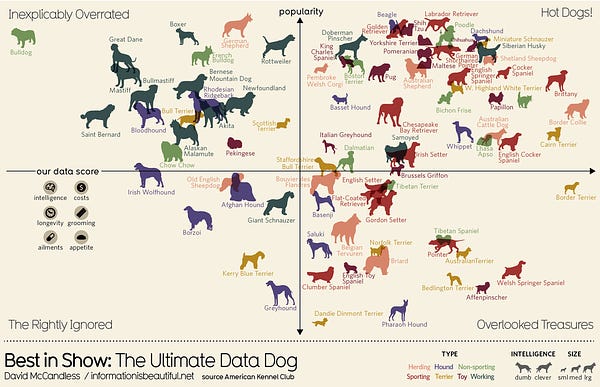
🫀 Master the body’s intricacies. Curious about the inner workings of our different body systems? Check out this amazingly comprehensive interactive site, which includes a thorough breakdown of the human body’s many systems. Its anatomy explorer interface is also packed with detailed annotations and is seamless to navigate. Here’s the ultimate cheat sheet for any student of biology and medicine.
🌳 Remarkable trees. How did the Dragonblood tree get its name? Where might we find the world’s tallest trees? Check out this formidable list of the world’s most remarkable, strangest and enchanting trees: from the mystical wisteria in Japan to the towering coastal redwoods in California.
📈 Choices that compound. Felt unwell and chose to stay home instead of attending a party? Here’s an illustration of how your small decision might have compounded to doing lots of good. As the year comes to a close, give yourself a pat on the back for having made the right decisions this year!


The Personal Stuff
❤️ The Intern Corner
This week, we asked our team the question, “What would constitute a “perfect” day for you?”

Andrea Love: “A long run with friends, a delicious cup of coffee afterward, and spending the day in the sun with a good book.”
Miguel Borbon: “Rainy day, with some hot food, and either a book or a good show on hand.”
Maria Victoria Dreher: “Sleeping in, having time to actually make breakfast and enjoy lots of Netflix. Ideally rain or snow lol.”
He Shiying: “A rainy day in the mountains, cosied up with a good book and warm bowl of nourishing soup. That sounds like perfection to me!”
What’s a perfect day look like for you? Hit reply and let us know!
As we close out 2021, we are so grateful for your support and pursuit of the facts. We are wishing you all a healthy and happy new year!
That’s it for this issue!
If you’re new here, we’d love to have you as a subscriber.
If you enjoyed this piece, feel free to smash the heart button below! What was your favorite feature this week? Comment or hit reply to let us know!
👇




